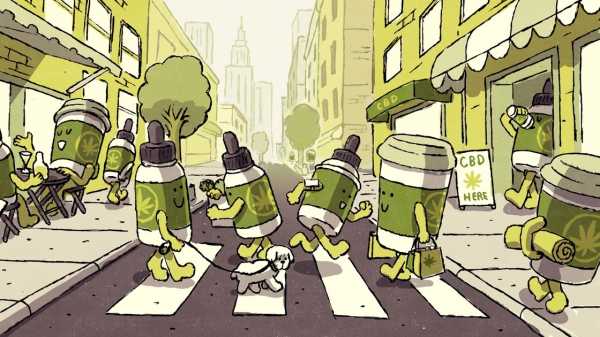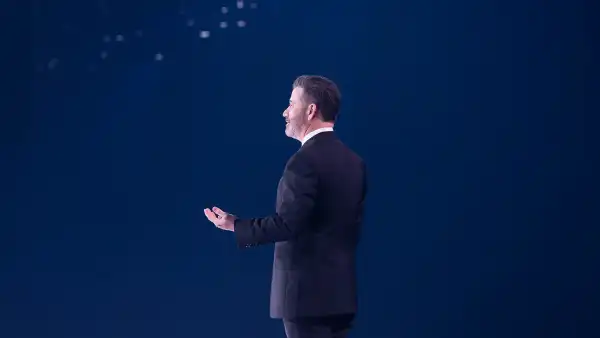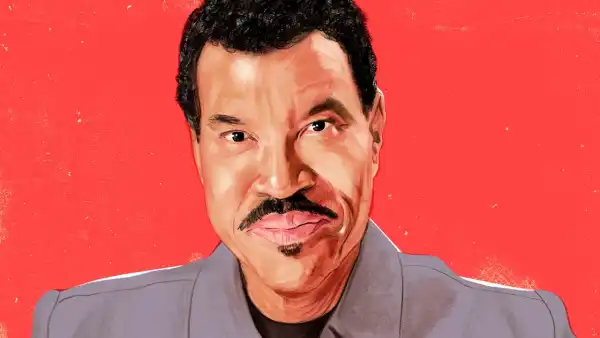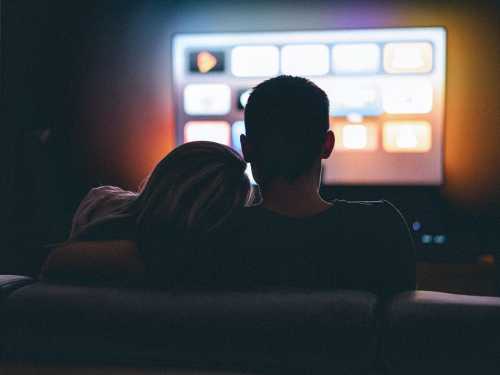
One morning, about a month ago, I walked out of my Brooklyn apartment on a quick mission to buy shampoo and ended up having six drops of CBD, the cannabis-based elixir, administered beneath my tongue by a Coloradan named Bodē. Such things are liable to happen in New York City these days. Bodē was in Zoë’s Beauty Products, my local cosmetics store in Greenpoint, talking up a line of CBD tinctures to the women behind the counter. It was obvious from his laid-back vibe, and his R.E.I.-inspired look, that he was not from the area. I might have ignored his pitch, and gone about my business browsing aisles of thirty-dollar conditioner and lilac hand creams, except that CBD—also known as cannabidiol, a nonpsychoactive chemical, found in marijuana and hemp plants, that has become the latest trendy ingredient among the wellness crowd—had been pursuing me around the city like the monster from “It Follows.”
It started earlier this year, when an acquaintance mentioned that she uses CBD to sleep. “It doesn’t get you high, it just chills you out,” she said. Later, I attended a crowded CBD yoga workshop, where an instructor named Brianna (who is now a field rep for a CBD-oil brand called Prime My Body) had us all ingest a dropperful of green goo from a communal bottle before settling into a series of restorative poses. After the class, one man proclaimed, to no one in particular, “I was so relaxed, I might have stopped breathing for a few minutes.” Then three coffee shops down the block from where I live started offering CBD-infused coffee. My local pharmacy hung a sign in the window proclaiming “Yes, We Have CBD!,” and 3 Roots, a juice bar in the neighborhood, put out a sandwich board with a laundry list of alleged CBD benefits scrawled in pink neon marker: “Anti-inflammatory, neuro-protective, anti-spasmodic, anti-depressive, anti-psychotic, anti-tumoral, anti-anxiety, antioxidant, mood-boosting.”
So I approached Bodē, who told me that his line of products, Bodē Wellness, which he makes in a tiny town near Telluride, includes two strengths of concentrated oil and two body balms—one unscented and one lemongrass, “for the ladies.” All are derived from industrial hemp, which contains almost no THC, making it legal to sell across state lines (though the legality of hemp is still somewhat murky). I told him that I had tried CBD in coffee, but that I hadn’t been able to feel its effects. He suggested that I try around 10mg of his strongest tincture, and that I hold the oil under my tongue for a minute before swallowing, to encourage “total absorption.” Then he offered to squeeze a dropperful into my mouth, right in the middle of the store. The oil was the brownish color of a stagnant pond, and tasted like old bong water with a hint of lemon. After ingesting it—perhaps, I will admit, because I really wanted to believe—I thought I felt something, a creeping sensation of serenity. I walked over to the East River and sat on a bench facing the water for almost an hour, feeling tranquil and unruffled, as if my nerves had been soaked in chamomile tea.
Later, in a phone call (which we scheduled around his farm’s “siesta schedule;” he returns to the fields at 4:21 P.M., “CBD Hemp time”), Bodē told me that his given name is Eric. He’d gotten into CBD after a girlfriend who was “working in the marijuana industry but really wanted to be a hempster” started dragging him along to hemp conferences. He had been working for more than a decade in natural foods, and had recently exited a marriage; he decided it was time for a change of scene, and a change of name. “I wanted my new name to feel like the tree of life, Bodhi, but also have this flair of body health and wellness,” he said. “And then I had seen someone else put the macron over a vowel in their name, so that’s how that happened.” After successfully peddling his wares to the beauty store, he told me, he’d continued through Brooklyn, like a hippie Harold Hill. The health-food devotees at the Park Slope Food Co-op, he said, had also agreed to carry Bodē Wellness. “They have seventeen thousand members,” he told me. “That’s more people than the town next to me in Colorado.”
Like many New Yorkers, I tend to be deeply wary of the nouveau-wellness movement that has crept into the city from L.A., with its Goopian buzzwords and mushroom tonics and colloidal silver—the idea that you can shop your way to an internal glow. New York’s CBD craze has already reached Dadaesque levels of consumerism—hundred-dollar tinctures to treat anxiety in pet cats and dogs; CBD-laced room service at the NoMad location of the James hotel, in Manhattan. But CBD, with its potential to unclench tense muscles and pacify anxious thoughts, also promises to deliver something that many New Yorkers desperately need. Some of us will try anything that promises to soften the city’s edge, especially if it doesn’t require a prescription. Verena von Pfetten, a co-editor of the New York-based marijuana life-style magazine Gossamer, told me that her personal CBD regimen includes five to fifteen milligrams of tincture nightly, with an occasional extra daytime dose during mentally taxing periods. “With it, I can have an even amount of sleep, and avoid significant periods of stress,” she said. “This is about consistently keeping your body at a regular equilibrium.”
CBD also provides New Yorkers an alluring first whiff of mainstream cannabis culture at a time when the state’s leaders, having lagged behind other East Coast states in legalizing marijuana, seem to finally, maybe be coming around. (Mayor Bill De Blasio recently ordered the N.Y.P.D. to issue summonses instead of arresting people for smoking weed; Cynthia Nixon, in her campaign to challenge Andrew Cuomo for governor, has been outspoken about how marijuana’s criminalization disproportionately affects people of color.) Even if New Yorkers can’t yet enjoy carefully dosed artisanal weed gummies and attend multi-course marijuana dinners (at least not many), we can perhaps, with glugs of CBD in our matcha shakes, regulate and optimize our moods in the way we imagine West Coasters are doing every day. Better still, hemp-derived CBD, absent weed’s psychoactive effects, is palatable to the high-achieving New Yorker who still thinks of marijuana as a stoner’s drug, or at least a threat to productivity—you can swill a little at your local coffee shop in the morning, alongside your fellow-commuters, and still put in a ten-hour workday.
It’s worth noting, too, that many doctors believe that CBD has genuine medicinal value. Just last month, the F.D.A. approved a CBD-based drug for the treatment of Dravet syndrome, a childhood epilepsy disorder. I spoke to Esther Blessing, a psychiatry professor at N.Y.U., who believes that cannabidiol “is unprecedented in the field of neuropsychiatry” because it appears to have the potential to treat a wide variety of disorders—its best-documented effect is its ability to increase levels of anandamide, a neurotransmitter that counteracts stress. But she says that the research is still preliminary, and the unregulated market for CBD means that consumers are left to sort out the hemp oil from the snake oil. Yasmin Hurd, a doctor at Mount Sinai who uses four-hundred- to eight-hundred-milligram doses to study CBD’s benefit in opioid-addiction treatment, told me that hoping for therapeutic effects from a dosage as low as what’s found in commercial products like CBD coffees, which tend to contain only around twenty-five milligrams, is “ridiculous.” Joshua Kaplan, a neuroscientist whose upcoming research on CBD’s effects on epilepsy, anxiety, and autism will involve “vaping with mice”—said that the research he’s seen indicates that taking small doses of five to twenty-five milligrams multiple times a day could, “in theory,” help reduce anxiety levels over time. “Does one dose of twenty-five-milligram CBD do much of anything for an adult with anxiety?” he said. “The data don’t support it.”
The practice of small, daily CBD dosing is what Ron Silver, the owner of Bubby’s, a comfort-food restaurant with two outposts in Manhattan, tells me he wants to popularize among New Yorkers. Silver recently started offering a CBD-infused sugar called Azuca on Bubby’s coffee menu. I sat with him recently on the patio of the restaurant’s West Village location, which had started to fill with overheated tourists who had spilled off of the High Line, looking to recharge with twenty-one-dollar banana nut pancakes. We sipped on ten-dollar Azuca-sweetened iced coffees, served in tall glasses with green-and-white swizzle straws. (The restaurant also serves Azuca pink lemonade, Azuca iced tea, and, for three dollars more, Azuca watermelon lemonade.) Each beverage, Silver told me, contains only around twenty-five milligrams of CBD, but he believes that drinking one a day can have profound anti-inflammatory and stress-relieving effects over time. “I introduced it here, because right now if someone wants a CBD coffee at Starbucks they can’t get one,” he said. “But they should serve them, and one day they will.”
Silver, a native of Utah, has been in New York for decades, but he has retained a vaguely Lebowskian air from years spent on the West Coast. He started developing Azuca five years ago, when he was looking to get further into the “cannabis space” and wanted to make a product that he could actually sell at Bubby’s, which he considers to be a kind of live-beta testing ground. (He is also developing a line of THC-based edibles based in Massachusetts.) He told the newspaper amNewYork that CBD was “the penicillin of the 21st century.” When I asked him if he meant that as cheeky hyperbole—penicillin, after all, has saved millions of lives—he said that he stands by the statement. “There’s two aspects to the whole CBD thing,” he said. “One is that it is trendy and could easily fall into the same trend as turmeric or coconut oil. The other, though, is that it actually works.”
Not long ago, I purchased a small bottle of “full spectrum hemp extract” from Bluebird Botanicals, another Colorado-based company, which is sold at a local drugstore. It cost twenty-five dollars and contained two hundred and fifty milligrams of CBD. If you consider this ten doses of twenty-five milligrams at $2.50 each, it sounds like a pretty good deal for an anti-anxiety supplement. It’s less than a latte; it’s cheaper than therapy. But investing in a multiple-times-a-day habit seems like a lot to wager on a product that is still so little understood. I kept the bottle in the fridge (apparently this keeps the oil fresh, though I do it because it dulls the taste) and used it only sporadically, which likely defeats the point. I took an emergency dose when I was in the throes of a migraine; I also took two extra-strength Tylenol and—why not—rubbed some eucalyptus essential oil on my temples. The next morning, I went into Littleneck Outpost, another coffee shop in my neighborhood. They had just put up a new sign next to the register advertising CBD coffee and five-hundred-and-twenty-milligram bottles of Plant People brand extract, priced at eighty dollars. When I asked the owner how it’s selling, he told me that it’s “flying.” “I think it’s a placebo effect,” he said. “But this is definitely the turmeric of 2018.”
Sourse: newyorker.com






